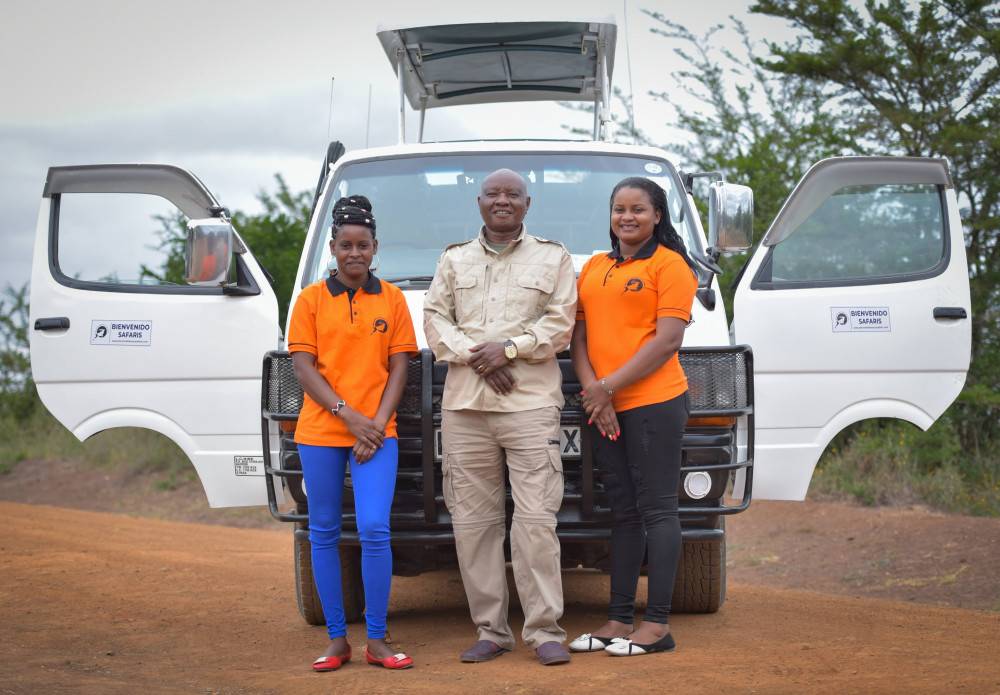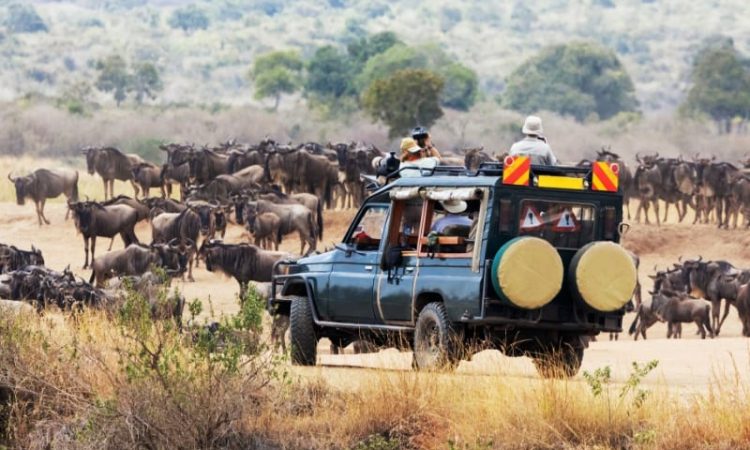Good Advice On Selecting Park Funzi
Wiki Article
What Precautions For Health I Must Take Before Traveling To Mombasa, Kenya For A Vacation?
It is crucial to take health precautions when visiting Mombasa in Kenya. This will ensure you have a great time and remain protected. Here are the most important health concerns:
1. Vaccinations
Routine Vaccinations: Ensure that you are up-to-date on routine vaccines such as measles-mumps-rubella (MMR), diphtheria-tetanus-pertussis, varicella (chickenpox), polio, and your yearly flu shot.
Hepatitis A: Recommended for all travelers because of the dangers of contaminated water and food.
Hepatitis B travelers who are exposed to blood or bodily fluids from sexual contacts, medical procedures or use of drugs should be informed.
Typhoid is a must-have for those who stay with friends or relatives, visit smaller cities or areas, or are an adventurous eater.
Yellow Fever travelers arriving from countries that have a possibility of transmission of yellow fever may need to show a vaccination certificate. Make sure you are aware of the most recent regulations.
Rabies: A must-have for anyone involved with outdoor activities that place them at risk of animal bites, such as hiking, camping, or caving.
2. Malaria Prevention
Mombasa is a place with a high incidence of malaria. Consult with your healthcare provider regarding the antimalarial medicines suitable for you.
Apply insect repellent with DEET. Also, wear long sleeves and long trousers. This is crucial in the evening. If you do not have a well-ventilated, air-conditioned hotel room, rest under a net.
3. Food and Water Safety
Drink Safely: Stick to the boiled or bottle-bottled water. Avoid ice cubes, tap water and non-sealed drinks.
Only eat foods that are well-cooked. Avoid eating raw meat, seafood as well as unwashed fruits and vegetables. Avoid street food, and select reputable restaurants.
4. Diarrhoea en route
Hand Sanitizer or washing your hands with hot water and soap is a good method to maintain a clean and healthy hand. Avoid drinking or eating food from sources you're not certain about.
Always carry medications such as Imodium (loperamide) as well as salts or oral rehydration. To treat serious instances, consult your physician for antibiotics.
5. Sun Protection
Sunscreen Apply sunscreen with an SPF of 30 or more. Reapply sunscreen frequently, particularly when swimming or sweating.
Wear hats and sunglasses to protect yourself from sunlight. Also, don't forget to wear lightweight, long-sleeved clothing.
6. Heating and Hydration
Stay Hydrated: Drink plenty of fluids, and especially water, to help prevent dehydration. Avoid drinking too much caffeine and alcohol since they can cause dehydration.
Beware of overexertion: Take breaks, especially in the hottest times of the day. Beware of heat stroke and heat exhaustion by seeking shade and cool areas.
7. Water Safety Activities
Swimming in Areas that are designated: Listen to local advice regarding conditions for swimming. Pay attention to potential risks, such as strong currents.
Marine Life awareness: Be aware of dangerous marine life and steer clear of it, such as jellyfish and seaurchins. Wear watershoes while walking on water that is shallow.
8. Medical Care and Insurance
Travel Insurance: Make sure you have comprehensive travel coverage which includes medical evacuations and emergency situations.
Local Medical Services: Be aware of the locations of medical centers that are reliable in Mombasa. The most reputable hotels usually provide you with information on doctors as well as nearby hospitals.
Meds: Carry a large quantity of all prescription medicines you take, along with copies of your prescriptions.
9. Emergency Contacts
Contact the Embassy of your country to obtain their contact information.
Local Emergency Numbers: Know the local emergency number: Fire (999) (999), Police (999) Ambulance (999).
Use these tips to reduce your risk and enjoy your vacation in Mombasa. See the most popular mombasa city tour for more advice including kenya holiday packages, africa in kenya, trips to kenya safari, safari trips in africa, kenya safari packages, tour company in kenya, kenya safari tours, mombasa tour companies, kenya safari holiday, tour mombasa and more.

What Accommodation Considerations Should I Be Aware Of When I Am On Vacation In Mombasa?
The right accommodation in Mombasa can make your stay more comfortable and enjoyable. Here are some important points to take into consideration:
1. Accommodation types
Mombasa has a wide range of hotels, from budget to luxury. There are many hotels located near the beaches. They have amenities like swimming pools, restaurants and tour services, among others.
Hotels are more expensive and typically offer a range of services such as all-inclusive, watersports, and entertainment.
Guesthouses/B&Bs. If you're looking for more intimate experiences stay at guesthouses or bed and breakfasts. These establishments offer a warm and welcoming atmosphere.
Airbnb Vacation Rentals: Airbnb gives you flexibility, and it can be a good value if you're in the area for a long period of duration or in a larger group.
Hostels are an excellent alternative for those on a budget. They have basic amenities and are an ideal place to get together with other travellers.
2. Location
Stay in hotels near popular places of interest. Some of the most sought-after areas include Nyali Beach, Diani Beach and the city center near Fort Jesus.
Access to Transport Take into consideration the possibility of public transport, or the proximity to major highways when you plan to visit different parts of Mombasa.
Safety: Research the safety of the area in which your lodging is. Be sure to stay in well-known and reputable areas.
3. Amenities and Services
Internet Access: Ensure the hotel's Wi-Fi is reliable particularly if you require to stay connected.
Dining Options: Check whether the property offers on-site dining options or whether there are restaurants within walking distance.
Think about recreational facilities such as fitness centres, pools and spas.
Children-Friendly Facilities: If you're traveling with your children, be sure you check out accommodations that include family-friendly features such as child-friendly pools, kid-friendly clubs, and babysitting services.
4. Reviews and Ratings
Guest Reviews Read reviews of other travelers on websites like TripAdvisor.com, Booking.com or Google.
Search for hotels with high scores in terms of cleanliness, service and overall experience.
5. Budget
Find out the budget you have set. Find accommodation that fit it. Prices vary widely based on location, type and season.
Hidden Costs: Beware additional costs like resort fee, charges for parking, or fees for extra amenities.
6. Cultural Experience
Local vs. Global: Decide whether you'd prefer to stay in a hotel that has an international brand or one that offers a local experience.
Community-Based Tourism: Consider eco-lodges, or other tourism options for communities which provide an authentic cultural experience and support local communities.
7. Booking Flexibility
In case your plans alter, it is best to check the cancellation policies and flexibility.
Booking Platforms - Use booking platforms that are reliable and provide secure payment options, customer service, and assistance.
8. Special Requirements
Accessibility: Ensure that the accommodation is able to meet any special requirements such as accessibility for wheelchairs or dietary restrictions.
Pet Policy: Be sure to read the hotel's pet policy in case you're planning to travel with pets.
9. The Safety of Your Own Home
Secure Environment: Ensure you select a hotel with security measures, such as an open-to-all-day reception as well as security personnel.
Personal belongings : Check that the hotel offers a safe to store your important items.
You can improve your Mombasa vacation experience by choosing the ideal accommodation that meets your needs. Read the top rated best holiday destinations in kenya for site tips including kenya travel, tour firms in kenya, tour company, safari trips in africa, trips to kenya africa, kenya safari holiday, kenya safari holiday packages, tour company, kenya beach mombasa, kenya beach mombasa and more.

What's My Obligation As An Environmentalist If I'm On Vacation In Mombasa Kenya?
Being responsible for the environment when you go on holiday in Mombasa is vital to safeguard the natural beauty of the area and its diversity. Consider these environmental responsibilities:
1. Sustainable Accommodation
Eco-Friendly Accommodations: Look for hotels that encourage sustainability. Find eco-labels, certifications and certifications, such as Ecotourism Kenya.
Join in the hotel's efforts to save water. Reuse towels and linens. Turn off lights and air conditioning when they are not being used.
2. Responsible Wildlife Viewing
Respect Wildlife. Keep a safe distance away from animals so as not to disrupt them. Be sure to follow the rules provided by your guide on the tour.
Avoid Feeding Animals: Feeding wildlife can alter their natural diet and behavior.
Leave No Track. Do not litter in parks or wildlife reserves. Remove all trash and dispose of them in a proper manner.
3. Plastic Reduction
Minimize Plastic Use: Avoid single-use plastics. Carry a reusable water bottle, shopping bag, and the utensils.
Support Local Initiatives - Participate or help local beach cleaning efforts and organizations that are working to reduce plastic waste.
4. Water Conservation
Mombasa is suffering from water shortages. Use shorter showers, and turn off the taps when they are not in use.
Eco-friendly Products - Choose environmentally friendly and biodegradable toiletries to cut down on the impact of water on the environment.
5. Energy Conservation
Reduce energy use: unplug electronic equipment when it is not in use, and reduce the use of air conditioners.
Support renewable energy: Select accommodations and tour operators who use renewable sources of energy.
6. Sustainable Transportation
Public Transport: Reduce your carbon footprint whenever you use public transportation such as buses, matatus and other forms of public transportation.
Consider using bicycles to travel short distances. Certain areas have eco-friendly tuktuks.
7. Helping Local Businesses
Buy Local: Purchase local-made souvenirs, crafts, and food from local vendors and craftsmen to help support the local economy.
Fair Trade: Choose products that have been certified as fair trade to ensure that local producers receive fair compensation.
8. Environmental Education
Learn and share Learn and Share - Get educated about the local environment, and the conservation efforts. You can share with others your findings to raise awareness.
Respect local cultural practices Respect and learn local customs and practices in the field of environmental conservation.
9. Marine Conservation
Responsible Snorkeling & Diving: Avoid touching or stepping directly on coral reefs. Use sunscreen that is safe for reefs to safeguard marine life.
Do not dump waste into the ocean. Take part in programs to protect marine life or help in the process.
10. Ethical Souvenirs
Avoid Wildlife Products Don't buy items that are made from endangered species, like ivory or tortoiseshell.
Sustainable Materials: Choose items made of recycled or sustainable materials.
11. Join to participate in Conservation Activities
Consider becoming a volunteer by engaging in local conservation or tourism projects.
Help local NGOs. Donate to local NGOs and groups that work to protect the natural environment.
12. A responsible traveler is a great idea
Groups of small size to minimize the impact on the environment.
Eco-Tours: Choose tour operators that are dedicated to sustainability and eco-friendly practices.
When you keep these environmental obligations in mind, it is possible to contribute to the preservation and beauty of Mombasa and the diversity of the region for future generations. Follow the top rated kisite mpunguti marine for blog recommendations including africa and safari, safari and tours, african safari excursions, kenya tours, safar kenya, cheap kenya safari packages, kenya travel packages, safari trips in kenya, kenya tourism, kenya mombasa holiday packages and more.
